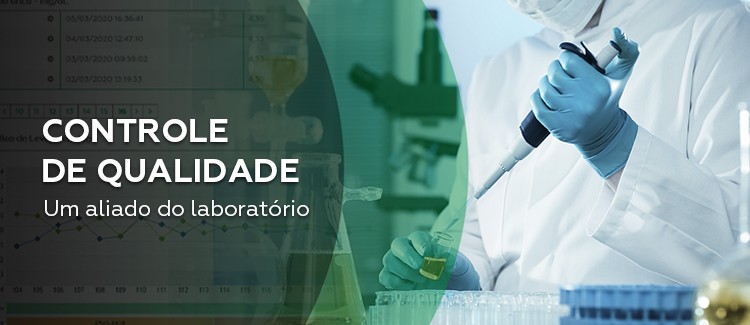To protect the population during the period of spread of the new coronavirus, isolation measures are necessary, often moving away from more experienced or strategic professional testing sites to make analytical decisions. To avoid errors in the analytical phase of the laboratory and costs in repetitions, quality control is essential in this scenario.
In human health, errors in laboratory tests can deprive patients with undetected diseases of adequate treatment. In return, patients diagnosed with false positives will be able to use valuable resources from the currently overloaded health system. In this period of pandemic, blood banks are already affected by the shortage of bags and need, simultaneously with emergencies, to precisely release the adequacy of the collected material for the sake of patient safety. Veterinary laboratories must provide reliable reports to professionals in the field taking care of species that require attention. In the testing segment, the pharmaceutical industries, so essential to the supply of medicines, need to apply various tests for the approval of the inputs from the beginning to the end of the production processes. With the same emphasis on food industries and other sectors that supply the population Accurate physical-chemical and microbiological analyzes avoid process interference, repetition costs and collaborate with the health of the population.
In view of the indisputable relevance of accurate reporting, many managers are being challenged during the period of team adaptation and care of people. Protecting the reputation of the laboratory and not allowing the quality of the reports to be affected by the constant changes and emotional pressures that affect everyone, has been included in the weighted risks of distance.
Therefore, laboratories need to intensify the use and analysis of quality control. The preventive actions provided by the quality tools are more efficient than the corrective actions, since they avoid the waste of supplies, expenses with repetitions and rework, optimize the human work available and make the analyzes more productive and reliable.
Quality control is essential in times of uncertainty and complexity. It contributes to the credibility and sustainability of the laboratory during and after the time of scarcity of resources. It acts as an ally for professionals who require reliable data to guarantee their decisions in moments of fast and precise actions.
New alliances are likely to emerge during and after the pandemic scenario. Among the criteria for selecting an analysis partner, the ability of the partner to provide undisputed information that contributes to the contractor’s success is primarily assessed. In this context, the laboratory’s performance history during this period will be essential to promote your institution.

